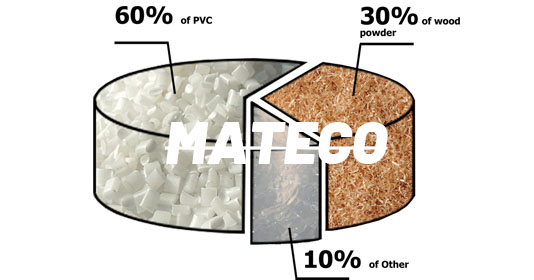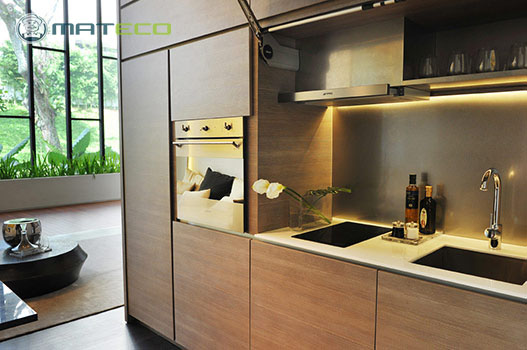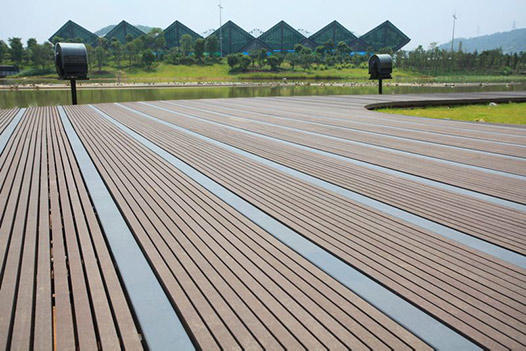Is PVC or WPC Better for Decking?
When it comes to building the perfect outdoor deck, choosing the right material is one of the most critical decisions you’ll make. WPC Decking (Wood Plastic Composite) and PVC Decking (Polyvinyl Chloride) are two of the most popular choices, and both offer different benefits. But which material is better for your decking?
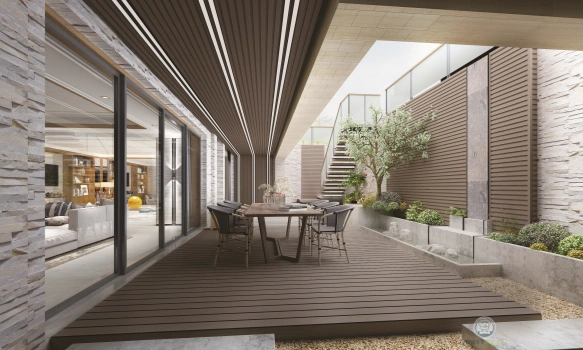
Table of Contents
What is WPC Decking?
WPC decking is an outdoor decking material that combines wood fibers with plastic. The composite decking made from the blend of these materials mimic the natural look of wood, but are more durable and resistant to moisture, rot, and insects. Often made from recycled materials, WPC decking is an eco-friendly option for homeowners looking to reduce their environmental footprint.
With its wood content, WPC decking retains a warm, natural look and texture that appeals to those who want the charm of a wood deck without the constant maintenance. It comes in a variety of colors and finishes to personalize your outdoor space.
What is PVC Decking?
On the other hand, PVC decking boards are a synthetic decking material made entirely of polyvinyl chloride. Since it contains no organic components such as wood, it is completely resistant to moisture, rot, mold, and insects. This makes it ideal for areas with high humidity or exposure to water, such as around swimming pools.
PVC decking is typically lighter than WPC decking and is available in a variety of colors, some of which mimic the look of wood. However, the synthetic nature of PVC makes it difficult to replicate the warmth and realism of WPC decking.
Is PVC or WPC Decking Better?
There's no one-size-fits-all answer when comparing PVC and WPC decking - it depends on your specific needs, preferences and budget. Both materials offer excellent durability and low maintenance, but they do have some key differences that will influence your choice.
If you prioritize eco-friendliness and the aesthetics of wood, then composite decking may be the better choice. It combines natural wood fibers with plastic to provide a more authentic wood look while utilizing recycled materials.
On the other hand, if you live in a particularly humid or wet climate, or if you're looking for something that is extremely lightweight and requires little maintenance, then PVC decking may be a better choice, although it tends to be more expensive.
What Are the Advantages of WPC Decking?
WPC decking has quickly become one of the most popular alternatives to traditional wood decking, and for good reason. Here are the main advantages:
Natural Appearance: WPC decking looks and feels more like real wood, providing warmth and charm to any outdoor space. It mimics the grain and texture of wood more effectively than PVC decking, appealing to those who prefer an authentic look.
Eco-Friendly: Many WPC decking products are made from recycled wood and plastic, reducing the need for virgin materials. This makes it an environmentally conscious choice for those looking to go green.
Durability: WPC decking is resistant to moisture, rot, termites, and cracking. Its plastic component helps to enhance the durability of the material while the wood component ensures it remains strong and sturdy.
Low Maintenance: Unlike traditional wood, WPC decking doesn’t need staining, sealing, or frequent repairs. Occasional cleaning with soap and water is enough to keep it looking fresh.
Cost-Effective: While WPC decking may initially cost more than natural wood, its long lifespan and low maintenance requirements make it a cost-effective solution in the long run.
What Are the Disadvantages of WPC Decking?
While WPC decking has many benefits, it’s not without its drawbacks:
Temperature Sensitivity: WPC decking can become quite hot under direct sunlight due to its plastic content. While it’s not as hot as PVC decking, it’s still something to consider if your deck will be in constant sunlight.
Heavier Material: WPC is denser than PVC, which can make installation more challenging, especially for DIY projects. However, the added weight contributes to its strength and solid feel underfoot.
What Are the Advantages of PVC Decking?
PVC decking is also a popular choice for those looking for a low-maintenance, long-lasting decking solution. Some of its key benefits include
Moisture Resistant: Because PVC does not contain any organic materials, it is 100% moisture resistant, making it ideal for wet environments.
Virtually Maintenance-Free: PVC decking requires little maintenance. It doesn't need to be sealed, stained or cleaned often, making it a great choice for busy homeowners.
Lightweight: PVC is much lighter than WPC decking, making it easier to handle and install. This can save time and labor costs, especially for larger projects.
Resistant to rot and insects: Since there is no wood in PVC decking, you don't have to worry about termites, rot or long-term decay.
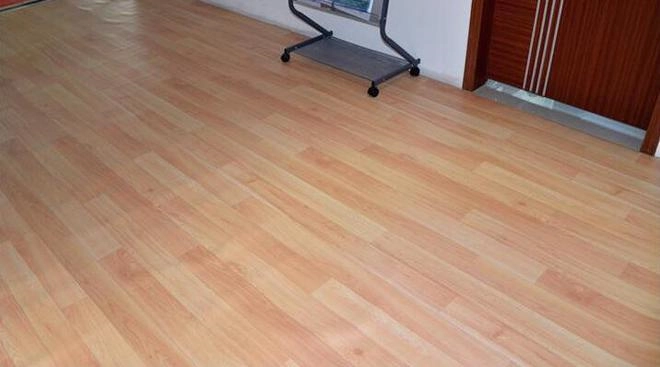
What Is The Downside of PVC Decking?
While PVC decking has many advantages, it also has its own disadvantages:
Higher Cost: PVC decking tends to be more expensive than wood plastic and natural wood. While the lack of maintenance costs may offset the initial price over time, the upfront cost may be prohibitive for some.
Synthetic Appearance: Even with advances in design, PVC decking often lacks the authentic wood grain and texture that WPC decking has. This can be a major drawback for homeowners seeking a more natural look.
Insulation: PVC decking can get very hot in direct sunlight and can be uncomfortable to walk on barefoot in hot weather. This can be a problem for decks in sunny areas.
Environmental Impact: PVC is made from a non-renewable resource (petroleum-based plastics) and is less environmentally friendly than wood-plastic decking, which typically uses recycled materials.
Conclusion
Both WPC and PVC decking offer excellent solutions for modern decking needs, but the right choice will depend on your specific priorities. If you’re looking for a natural wood-like appearance, eco-friendliness, and cost-effectiveness, WPC decking offers a balanced combination of beauty, durability, and environmental responsibility. On the other hand, if your primary concern is withstanding moisture and reducing maintenance to almost zero, PVC decking might be worth the higher upfront cost.
If you are looking for a WPC manufacturer, MATECO will be your best choice.
WhatsApp: +86-13380085620
Email: info@matecowpc.com




